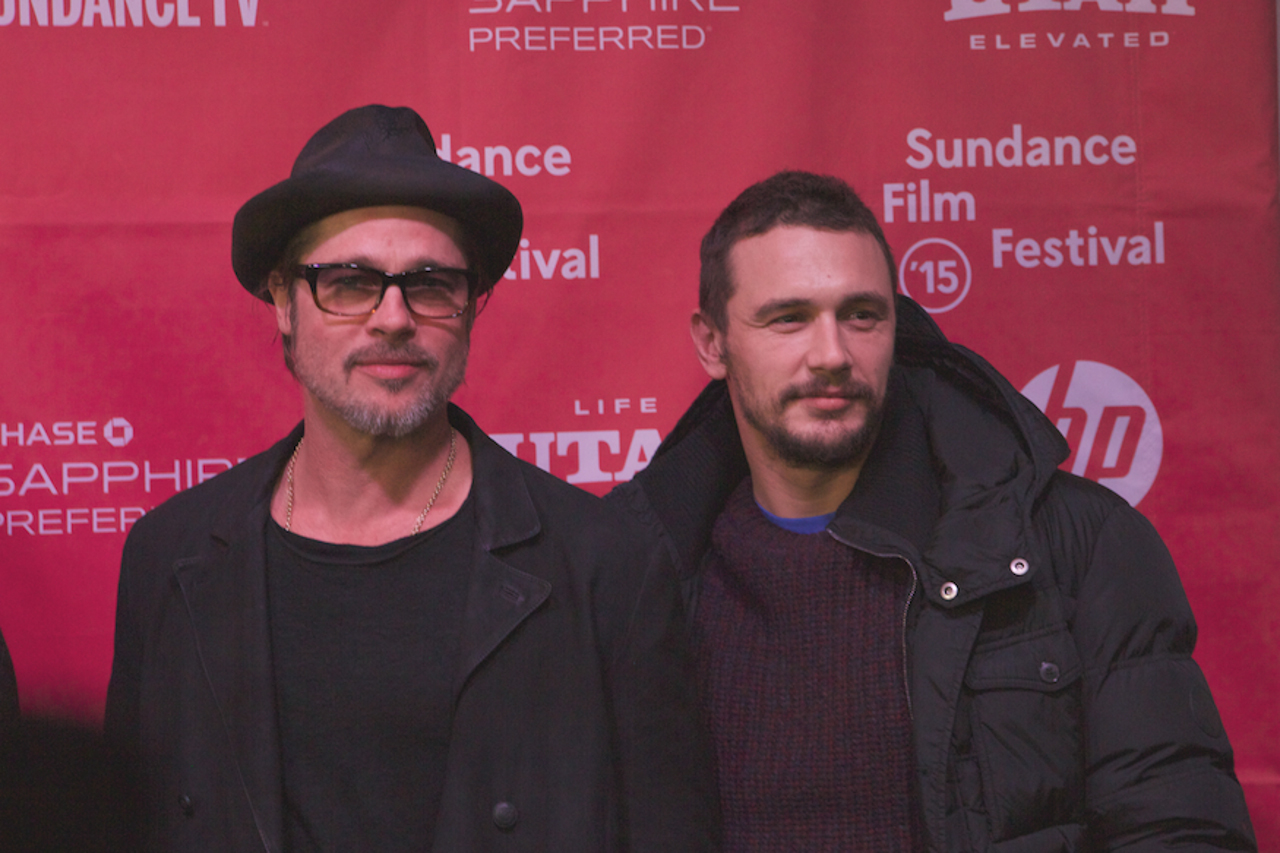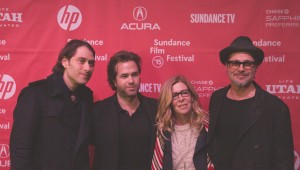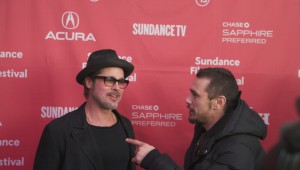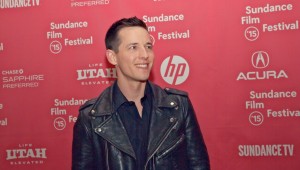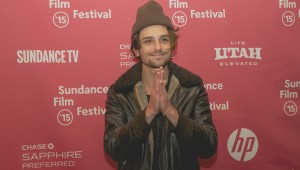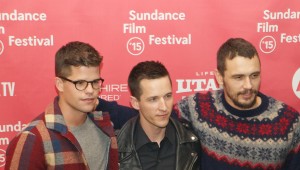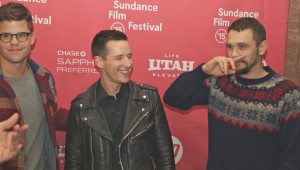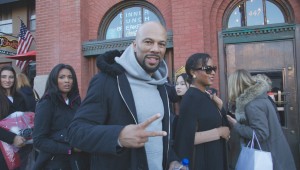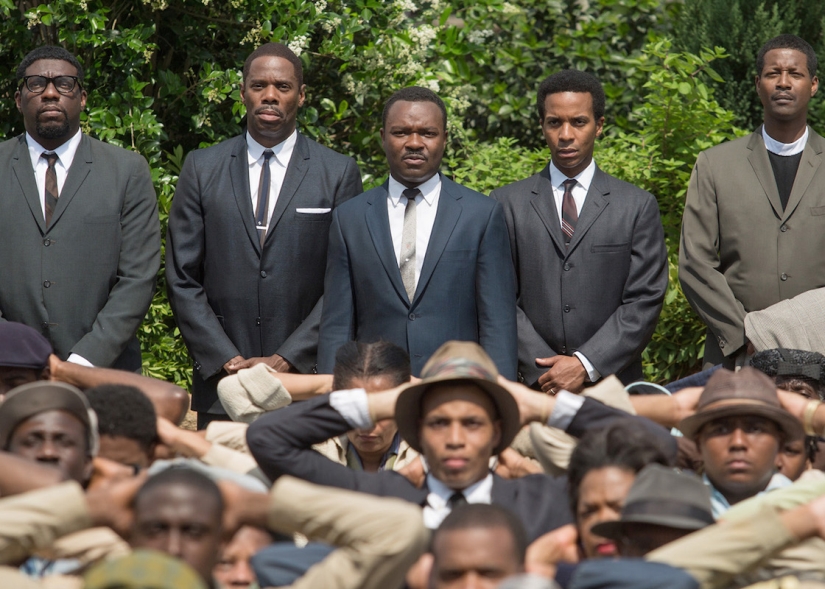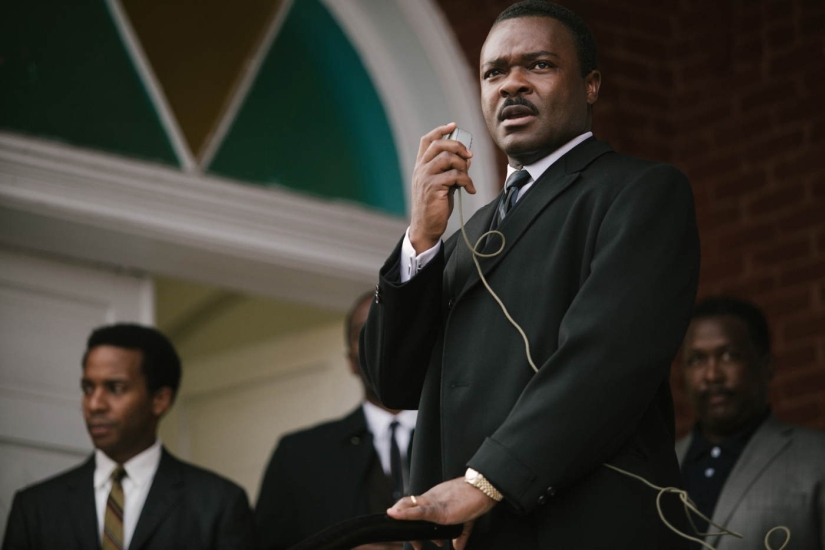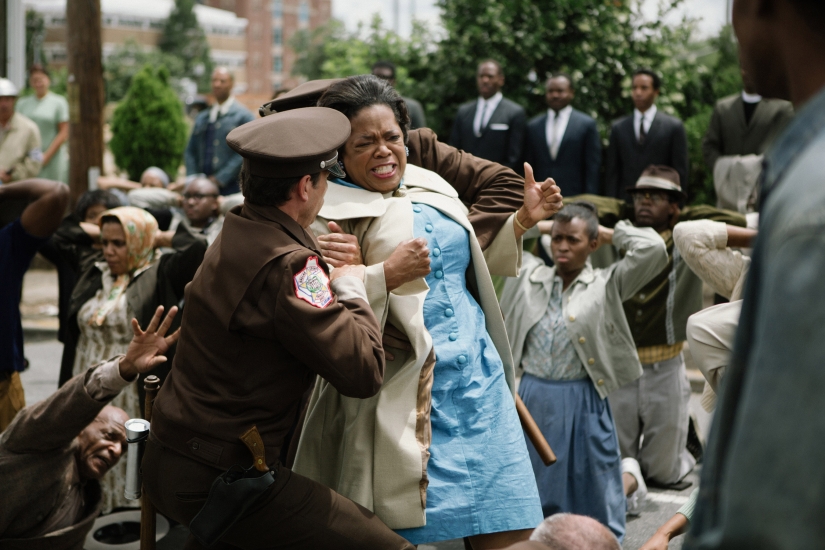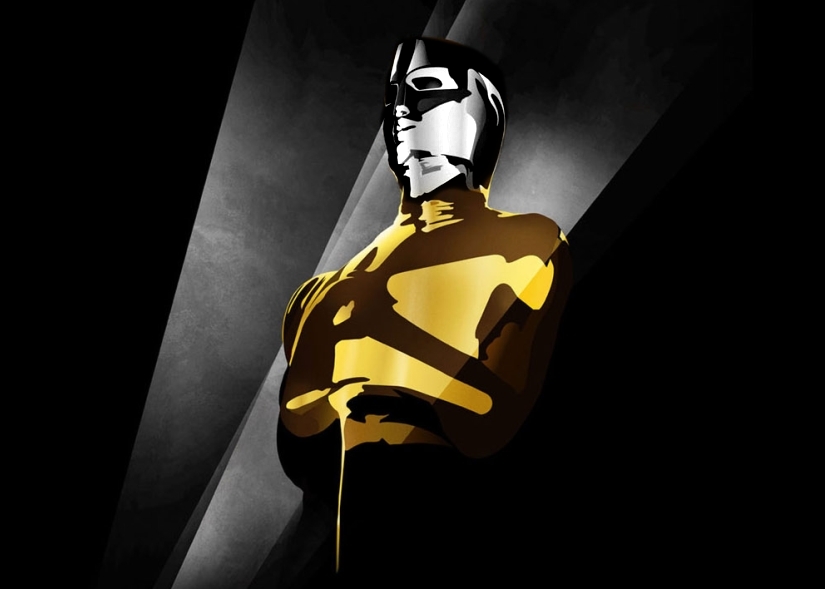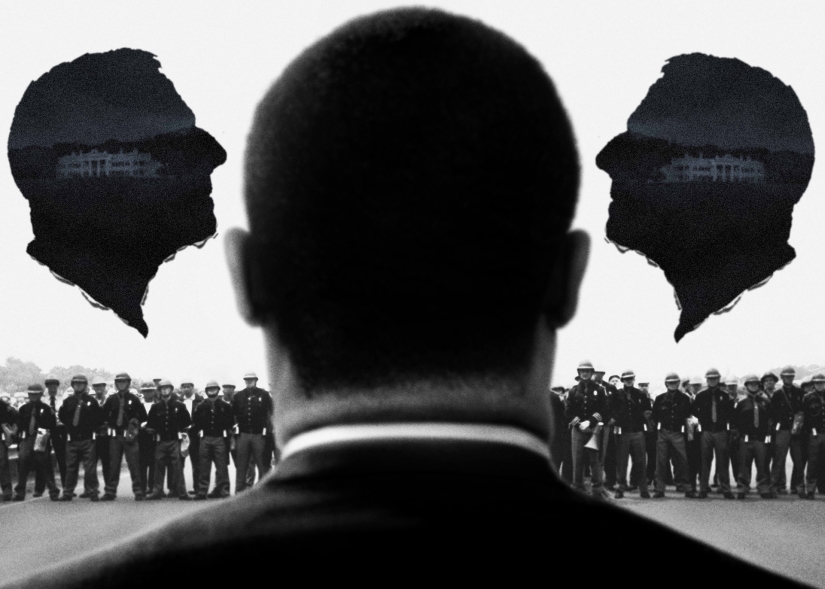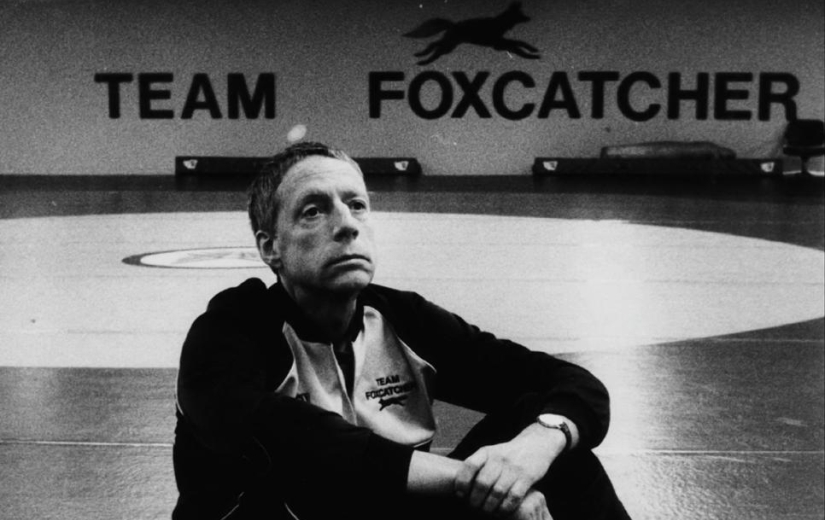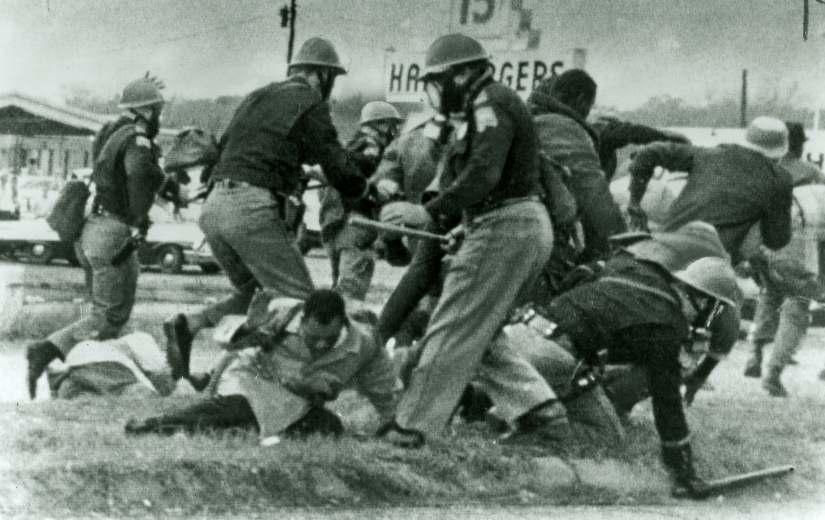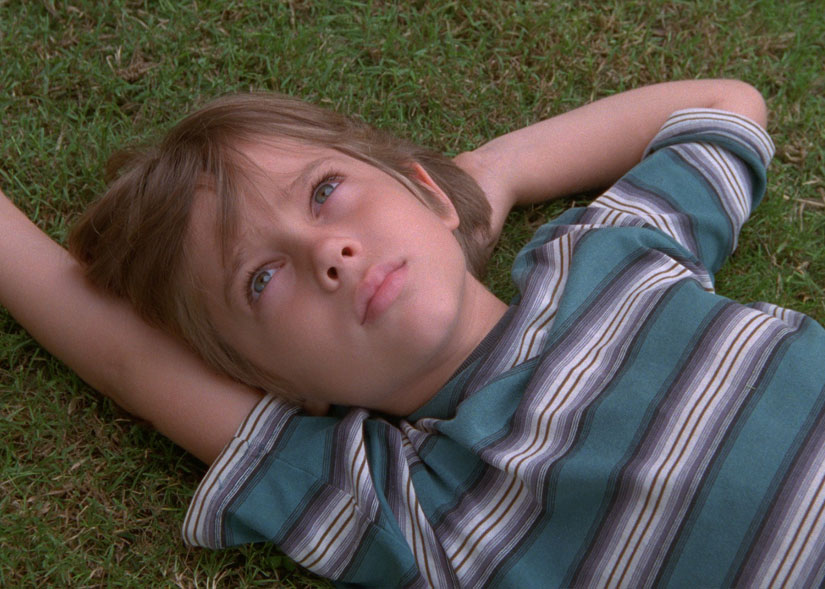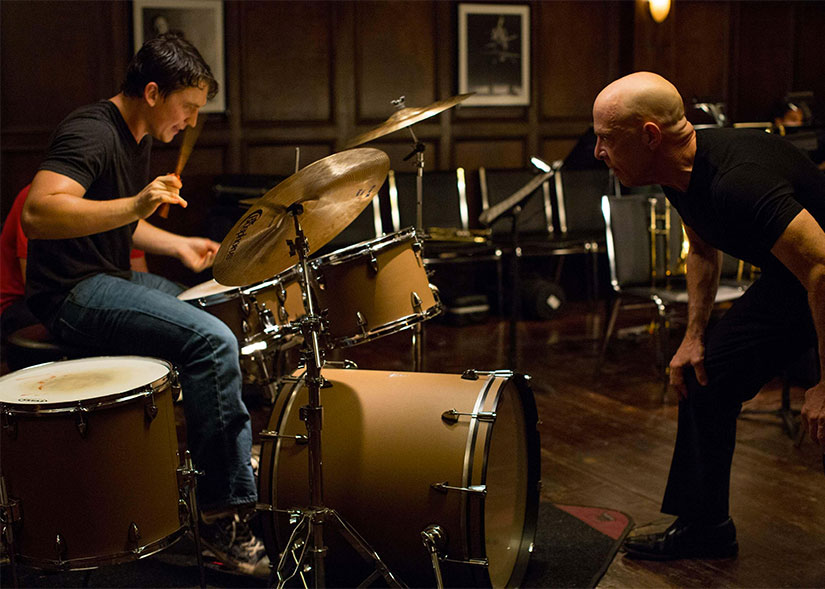[Sundance Video] Sundance Film Festival 2015 Recap
Video shot and edited by J. Frank
With January 2015 well behind us, we can officially say so long to Sundance 2015. As United States' first major film festival of the year, Sundance represented what to expect from some of our favorite festival films this year. Ranging from heart-wrenching dramas, hilarious comedies, and harrowing psychological thrillers, Sundance had it all.
However, it's not all movies, as myself and our camera man J. Frank showed. If you missed our photo recap, we also found some time to explore Park City, UT, as well as attend some special film parties. As if that wasn't enough, we also have our full Sundance video recap detailing everything we had the opportunity to participate in. If a picture is worth a thousand words, this video is worth millions.
With that said, re-visit all of our coverage from Sundance 2015 below the video.
REVIEWS
[Sundance Review] The Summer of Sangaile
[Sundance Review] Z for Zachariah
[Sundance Review] Cronies
[Sundance Review] Stockholm, Pennsylvania
[Sundance Review] Entertainment
[Sundance Review] The Overnight
[Sundance Review] Ten Thousand Saints
[Sundance Review] Mississippi Grind
[Sundance Review] Me and Earl and the Dying Girl
[Sundance Review] The Stanford Prison Experiment
[Sundance Review] People, Places, Things
[Sundance Review] I Am Michael
INTERVIEWS
[Sundance Video Interview] Cast and Director of Cronies
[Sundance Video Interview] Justin Kelly (Director of I Am Michael)
[Sundance Roundtable Interview] Jason Isaacs and Saoirse Ronan (Stockholm, Pennsylvania)
[Sundance Roundtable Interview] Jim Strouse and Jemaine Clement (People, Places, Things)
PHOTOS
[Sundance Photos] Sundance Film Festival 2015
[Sundance Photos] Sundance Film Festival 2015 Red Carpets
10 Photography Movies Every Photographer Should See
It's no secret that film making and photography go hand in hand. One photo can inspire the tone of a whole scene, while composition, framing and lighting play equal roles in both. As a photographer I find myself constantly acknowledging and commending a good frame when I see one, especially in cinematography. Increasingly often, I find myself constantly searching for films where photography plays a major role, or with and about a photographer as a lead role. While photography movies can captivate and inspire photographers specifically, I think they can also inspire anyone to capture a picturesque moment when they see one.
That being said, I compiled a list of 10 Photography Movies every photographer should see, but it's pretty much what I think everyone should see. And because I know there are plenty more out there, definitely feel free to share some of your own favorite photography films with us.
(The following is listed in no particular order)
[Sundance Photos] Sundance Film Festival 2015 Red Carpets
Photos by J. Frank
In addition to the atmosphere/environment photos J. Frank took at Sundance 2015, he also took part in some red carpet events for various films! You can see some of those photos below, featuring such actors as Brad Pitt, James Franco, Sarah Silverman, Jason Sudeikis, and more!
[Sundance Photos] Sundance Film Festival 2015
Photos by J. Frank
Throughout our stay in Park City, UT, camera man extraordinaire J. Frank took some amazing footage and photos from about a dozen events we attended at this year's Sundance Film Festival. The official Sundance Film Festival 2015 video will be coming soon, as well as some red carpet photos, but for now, enjoy these random photos J. Frank took last week. The photos include the Sundance Day One Party, the Lipton Lounge featuring DJ Mom Jeans (AKA That 70's Show's Danny Masterson), various scenery shots of Park City, UT, and some special appearances from Entourage's Adrian Grenier and Chicago rap legend Common.
Selma's Oscar Snub: Why Awards Strategies and Hollywood Politics Are a More Likely Factor Than Gender and Race
As with every year, the big story following the announcement of the Academy Awards nominations is who got snubbed. This year, the most glaring omission was Selma.
The critically acclaimed film about the 1965 Selma to Montgomery marches snagged two Oscar nominations: Best Picture and Best Original Song ("Glory" by John Legend and Common). But nothing for Selma's director Ava DuVernay, or its star David Oyelowo, or cinematographer Roger Deakins, or screenwriter Paul Webb.
The optics of the snub are bad. As The Hollywood Reporter noted yesterday, the field of nominees for the major awards is predominantly white (and exclusively white in the acting categories). It's left a number of people wondering if racism and/or sexism was involved with Selma's snub, or if the controversies involving Selma's depiction of President Lyndon Johnson were also a factor.
After exchanging emails with my friend Steve Kopian who runs Unseen Films, I think there's something else going on even though race and gender are important to consider. It seems like the main reason Selma was snubbed had to do with its late release and poor awards season campaign, because in the end, the Academy Awards are a PR battle.
Selma was delivered to Paramount on November 26, which left limited time to get a robust award's season strategy in motion. Given that, the main factors that led to the Selma snubs are probably the following:
- DVD screeners for Selma were only sent to Oscar and BAFTA voters; none were sent to voters of the Directors Guild of America (DGA), the Screen Actors Guild (SGA), the Producers Guild of America (PGA)
- Selma didn't have a world premiere at one of the major year-end film festivals (i.e., the Toronto International Film Festival, the Telluride Film Festival, the New York Film Festival)
- Selma's limited Christmas release in select markets came too late to build the necessary Academy voter buzz
Earlier this week, Variety had a good rundown of the importance that DVD screeners played in all this. There's the possibility that major industry players didn't get their eyes on the film in time, or that they saw the film too late to change their minds about other films they saw earlier.
Production of official watermarked DVD screeners takes a while. Since the film was delivered late in November, the screener DVDs weren't even ready to go to voters until December 18. By then, SAG's voting period had passed and the PGA voting period was in full swing. Buzz and chatter back and forth between different groups of voters just wasn't there, so no chance for little suggestions of award buzz being transferred from one set of industry voters to the next.
Sadly, despite the gambit, Selma wasn't nominated for any BAFTAs.
Had Selma been completed earlier, some of this industry buzz could have been generated sooner at one of the major last-quarter film festivals. A movie can be elevated in the eyes of the industry simply by a major debut at a film festival, and it can help a movie in a unique way that a high-90s Tomatometer score can't.
Since Selma was completed in late November, there was no chance that a satisfying version of the movie would be ready to play at Telluride or Toronto (both take place in September) or at the New York Film Festival (which takes place in October).
A working version of Selma played at the AFI Fest on November 11, two weeks before the final version of the movie was delivered. While the early buzz at AFI Fest was positive, again, it may have been too late to knock out earlier award season frontrunners, like Richard Linklater's Boyhood (which debuted at Sundance), Wes Anderson's The Grand Budapest Hotel (which debuted at the Berlin International Film Festival), Bennett Miller's Foxcatcher (which debuted at Cannes), Alejandro Gonzalez Inarritu's Birdman (which debuted at the Venice International Film Festival), and Morten Tyldum's The Imitation Game (which debuted at the Telluride Film Festival).
Of course, Clint Eastwood's American Sniper also played at AFI Fest, and despite the controversies around that film's factual errors, it garnered six Oscar nominations, including Best Picture, Best Actor, and Best Adapted Screenplay. So what gives there? In terms of award season, I think there's a unique case of Eastwood's clout making a big difference, because clout goes a long way in the Oscar PR battle.
Eastwood's an esteemed fixture in Hollywood given the longevity of his career. A late release by Eastwood has a better chance of crashing the awards season than a late release by someone new in the eyes of Hollywood like DuVernay. Had Selma been released by The Weinstein Company rather than Paramount, perhaps Harvey Weinstein would have glad-handed it into the major awards somehow. That's the power of clout.
But after the behind-the-scenes industry stuff, we're left with the nominations themselves and a look at how they reflect or are interpreted through the lens of real-world politics regarding race and gender. And I can't deny it looks bad.
The Selma snub seems especially egregious since this year's nominees play into a particular and persistent narrative about the Academy of Motion Picture Arts and Sciences (AMPAS): they are a bunch of out-of-touch old white men. In fact, the Academy voters are 93% white, 76% male, and their average age is 63. (These stats come from a report by NPR from February last year.) Current AMPAS President Cheryl Boone Isaacs, an African-American woman, is pushing for diversity in AMPAS membership, but the push will take time.
The disappointment in this year's Selma snub—maybe in most awards snubs, regardless of the medium—comes back to a narrative of blandness and the taste of the status quo getting reaffirmed, namely that the safest and least challenging works tend to be the ones that win; or in large groups of voters, it's the consensus winner that gets the award even though voters felt more passionate about another set of works. (First is the worst, second's the best, third is the nerd with the hairy chest, but fourth gets the award this year because it's all right enough probably I guess.)
I don't know if blandness is necessarily the case this year, though, given the strength of several of the movies that have been nominated for Oscars. But it's weird to think that a movie like Selma might have fared much better at next year's Academy Awards, given a whole 12 months to roll out a well-planned campaign rather than just one rushed and chaotic month. If Selma debuted at the Sundance Film Festival later this month or at Berlin in February, and if it rode that acclaim through 2015... but even then, who's to say?
Based on a True Story: Foxcatcher, Selma, and the Controversy of Adapting Real Life
Last week, Olympic wrestler Mark Schultz took to Twitter and Facebook to lash out at filmmaker Bennett Miller. Schultz is one of the subjects portrayed in Miller's latest film, Foxcatcher, which stars Channing Tatum, Steve Carell, and Mark Ruffalo. Adam B. Vary at Buzzfeed has cached Schultz's posts, which have been deleted from his social media accounts. "YOU THINK I'M GOING TO SIT BACK AND WATCH YOU DESTROY MY NAME AND REPUTATION I SWEAT BLOOD FOR," one tweet reads. "YOU AINT' SEEN NOTHING YET DUDE."
Foxcatcher focuses on the relationship that multi-millionaire John du Pont (played by Carell) developed with Schultz (played by Tatum) when establishing a wrestling training camp on the du Pont estate. Though never stated overtly, it's implied that du Pont is sexually attracted to Schultz. Miller—whose previous films, Moneyball and Capote, were also based on true stories—plays with the imagery and cliches associated with this awkward sexual dynamic. Hunky house guest Tatum is down on the mat with the effete yet maybe-too-enthusiastic Carell. In one sequence, Du Pont gets Schultz hooked on coke, and Schultz neglects training in a haze. Time passes off camera, the audience fills in the blanks. The next scene we see Schultz's character, he's upset and coked out and drunk, his hair bleached a cute California-dude blond.
On Facebook, Schultz called this implication of sexual relationship "a sickening and insulting lie" that jeopardized his legacy.
The Foxcatcher flare up and ongoing controversy surrounding the depiction of President Lyndon Johnson in Ava DuVernay's Selma got me thinking about the challenges that go into turning real life events into films. When fiction is based on a true story, the notion of true may have less to do with the facts and more to do with a contour of history and a shape of narrative. The phrase to emphasize is sometimes "based on" rather than "true story," though "true" is tricky too.
[youtube id="x6t7vVTxaic" align="center" mode="normal" autoplay="no" maxwidth="829"]
For Selma, the controversy stemmed from two guest columns by stewards of President Johnson's legacy. The first was "What Selma Gets Wrong" by Mark K. Updegrove on Politico, published just days before Selma's limited Christmas release. Updegrove is director of the L.B.J. Presidential Library and Museum and author of a book on the late president called Indomitable Will. The primary focus of Updegrove's piece is the portrayal of Johnson (played by Tom Wilkinson) as an impediment to Dr. Martin Luther King, Jr. (played by David Oyelowo) rather than a clear partner in the Civil Rights Movement. Updegrove presents Johnson's political priorities in terms of pragmatism, and that the later passage of the Voting Rights Act in 1965 as a strategic delayed move that allowed the passage of the Civil Rights Act in 1964.
Updegrove writes, "At a time when racial tension is once again high, from Ferguson to Brooklyn, it does no good to bastardize one of the most hallowed chapters in the Civil Rights Movement by suggesting that the President himself stood in the way of progress."
Published the day after Christmas, Joseph A. Califano, Jr.'s piece in The Washington Post, "The Movie Selma Has a Glaring Flaw," added to the scrutiny. Califano was President Johnson's top assistant for domestic affairs from 1965 to 1969, and the crux of his piece, like Updegrove's, is that Johnson and King were partners rather than uneasy allies. It should be noted that Califano's own flaw in his chain of argument comes early when he writes that the Selma march was Johnson's idea all along. Regardless, he raises interesting points about the disjunction between the history he feels intimately familiar with and the way certain events are depicted in the film.
"All this material was publicly available to the producers, the writer of the screenplay, and the director of this film," Califano writes. "Why didn’t they use it? Did they feel no obligation to check the facts? Did they consider themselves free to fill the screen with falsehoods, immune from any responsibility to the dead, just because they thought it made for a better story?"
Maybe. But it's also more complicated than that.
[youtube id="8361stZ8n0w" align="center" mode="normal" autoplay="no" maxwidth="829"]
There's a large question of legacy in these separate grievances against Foxcatcher and Selma. Legacy can trump the messiness of real life and complexities of history because legacy refers to an enduring notion that supplants the facts of an individual life. Legacy is no longer concerned with "This is what I experienced" so much as "This is how I will be remembered," and that distinction is important—it's the difference between the actual person and the idea of the person.
In the case of Schultz, there's a potentially harmful stigma that may be attached to him because of Foxcatcher. (Schultz's beef is entirely with Miller and not with Tatum, whose performance he's continued to praise.) Sure, Schultz's name's out there again, but contrary to the cliche, there is such a thing as bad publicity. The troubled, underachieving, and self-destructive side of his character in the film can be potentially damaging to his future earnings as a public speaker and life coach. When Schultz detailed the differences between his life and the Foxcatcher's depiction of it, part of it seemed like clarification and part of it a CV.
With world leaders, the question of legacy is even greater, and Updegrove and Califano's stewardship of Johnson's legacy is to be expected. Califano's overreach attributing the Selma march to Johnson may be part of that narrative-making and myth-making nature of legacy, and it's something that stewards of a political figure do. People are more complicated than their legacies, obviously, and there are some quotations (albeit some of dubious attribution and) from Johnson that are tinged with the casual racism of his era. Johnson's a product of his time, and each era may have ceilings for progressive sentiments for segments of the population. If the enduring legacy for Johnson is The Great Society, the Johnson seen in Selma may cause audiences to question the president's commitment to his idea. The stewards want to make sure the man and the legacy are viewed as commensurate rather than separate.
For the filmmakers, notions of history and legacy are often secondary to concerns of narrative, and if there's one certainty, it's that lived-life generally doesn't have the arc of narrative-life.
Lived-lives are messy, lumpy, not-so-neat things, and to try to condense the events of a life down into a story that satisfies is difficult if not impossible. Even individual events in a life aren't so neatly compartmentalized to prove satisfying. There's a whole chain of cause and effect to consider, and complicated interactions, and seemingly insignificant moments that are charged with actual significance, and, of course, all the boring bits. The facts of lived-life become condensed, merged, filtered, omitted, and transformed when adapted to a retelling as part of this challenge of crafting narrative-life from lived-life. (The problem with most biopics is that they're usually just sketches or caricatures of their subject with gestures, some subtle and others overwrought, at an overarching story.)
In other words, like David Byrne sang: "Facts are simple and facts are straight / Facts are lazy and facts are late / Facts all come with points of view / Facts don't do what I want them to."
Filmmakers also have a certain distance from the events themselves and the historical players in the events, which leads to different takes on what unfolded. In Miller's case, he had access and cooperation from Schultz during the making of Foxcatcher, but since he wasn't a participant in the actual events, he comes at the material from a different point of view. For DuVernay and Selma, there's a generational distance to consider in her approach to the material, a component of race as well, and even a distance from one legacy (Johnson's) in order to focus on humanizing another legacy (King).
But in addition to facts and distance, there's also a question of individual concerns and point of view. Miller found certain aspects of Schultz's and du Pont's story interesting and chose to explore them in a way that appealed to his sensibilities, and DuVernay similarly found her own interests in the Selma march and tried to explore them. These unique concerns from Miller and DuVernay play roles in their depiction of actual people, actual events, and even the fictional elements that play with actual events. Creation and invention become necessary as part of making story-life. Even when the film is ostensibly about real life, it's at best an approximation, though hopefully the inventions are as carefully considered as the facts. (Inventions and omissions make their own difficulties in based-on-true-story stories. Take the Jimi Hendrix domestic abuse allegations in John Ridley's Jimi: All Is By My Side and the glossing over Alan Turing's persecution for being gay in Morten Tyldum's The Imitation Game.)
The ultimate difficulty of adapting real life to the screen is this parallax view of history. Different players in the actual events and different participants in the recreation and evaluation of these events will necessarily see something different or know something more or interpret a moment in a way someone else hasn't. It's the messy tangle when legacy narratives and historical narratives and the demands of narrative per se weave with the interests and obsessions of filmmakers.
The mess is unavoidable. But maybe it's also a necessary process, not just of filmmaking and adaptation but of how we revisit and reevaluate news and history. Consider Angelina Jolie's Unbroken, a biopic about Jack O'Connell, which was met with mixed reviews for being too neat and one note, perhaps too obsessed with the legacy rather than the actual man.
There's rarely a single definitive text about history, or a single narrative about what happened in an event. While potentially problematic, these films based on true stories can add an additional dimension to what's occurred, another shift in the angle of observation. The distance from an event allows for a potentially valuable perspective—not necessarily better or worse but just worthwhile.
Maybe the closest we can get is something true enough in general, even if moments in a film are disputed as acts of truthiness or outright fabrications. From there, we can then parse out the fictions and the intentions of the creators and consider how story-life and lived-life play into the overarching narrative of the film and the overarching scope of history.
It's a cop out of an answer, sure, but it's pretty honest.
Geoff's Top 10 Films of 2014
As I mentioned in my Top 10 Trailers of 2014 list yesterday, I didn't watch as many films this year as I normally do. It's a travesty, to say the least, but I'd be lying if I said it didn't help make my list of Top 10 Films of 2014 easier to write. Featuring independent releases, Hollywood blockbusters, sports documentaries, family-friendly CGI-animated films, foreign films, and festival favorites, I believe my list of my favorite films from 2014 runs the gamut of modern cinema... with the exception of horror films, but you all know by now they're not really my cup of tea, right?
Read on as I share my list and help explain why they deserved being remembered.
Geoff's Top 10 Trailers of 2014
2014 was one of my favorite years of moviegoing, played in no small part by attending my first Sundance. While I watched less films this year overall than I have in my four years of officially being part of the film community, I still watched more than my fair share of trailers. I know people that live for trailers; I also know people who refuse to watch them. Both groups have very valid reasons, with the former embracing the snippets of story and style to help determine their film choices amidst the world of ever-increasing ticket prices, and the latter wanting to enter the film experience full of surprise and intrigue. Listed over the next few pages are some of my personal favorite trailers of 2014. I hope you enjoy watching them as much as I did.




